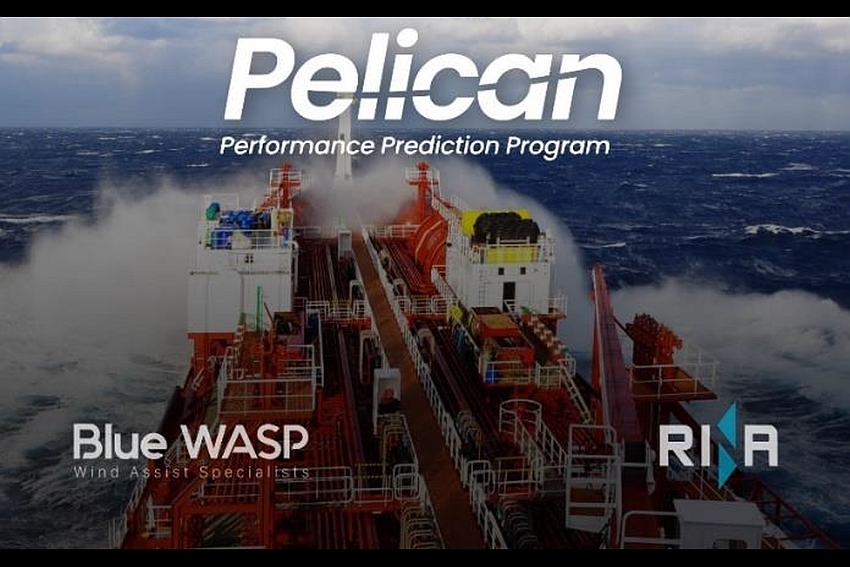RINA has awarded an approval in principle (AiP) for Blue Wasp Marine’s Pelican performance prediction software for wind-assisted ships. With this, Pelican has become the first software of its kind to have received class recognition.
Pelican, the product of over ten years of PhD research, is able to simulate the performance of a ship equipped with wind-assisted propulsion technologies using specific wind conditions and sea states. Pelican features a built-in force module for both aero and hydrodynamics. With this, reliable performance predictions can be rapidly obtained without recourse to costly computational fluid dynamics (CFD) or model testing for supporting the decision-making process during the design phase of the ship.
The software draws on a large database of wind propulsion systems comprising Flettner rotors, wingsails, turbosails and kitesails. Combining this with a dataset of over 1500 simulation results of sixty hull variants, representing a broad range of commercial vessel types, Pelican informs investment and design-related decision making with regards to installation of wind-assisted propulsion. It can also be used to generate dedicated vessel models for weather routing and voyage optimisation applications.
Also read: Blue Wasp Marine and Groot Ship Design team up for WASP
Mission to decarbonise
The software was developed by Blue Wasp Marine, a team of marine engineers with a shared passion for both sailing and green technology. Founded in 2021, Blue Wasp Marine is on a mission to help decarbonise the shipping industry.
Blue Wasp Marine co-founder Giovanni Bordogna: ‘We have been working on the development of Pelican for many years, including during our PhD research and it’s very satisfying to see those efforts paying off in this way. The recognition that Pelican has received from RINA will enable us to better serve our clients and paves the way for increased maritime sustainability.’
‘We are very pleased to validate the Pelican performance prediction software according to the newly published WAPS regulations and the IMO instruments,’ says Patrizio Di Francesco, EMEA special projects BD manager at RINA. ‘It has the ability to predict the decrease in fuel consumption and emissions based on the specific operational profile of the ship under investigation and to compare the different WAPS configurations to obtain the optimum one. Innovations such as Pelican are fundamental for enhancing digital solutions in the maritime sector, assisting all stakeholders in the navigation through the unexplored waters of decarbonisation.’
Picture by Blue Wasp Marine.
Also read: The winds of change: One zero-emission dilemma for shipping solved?








